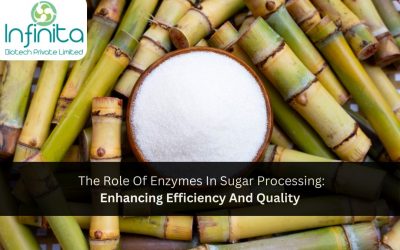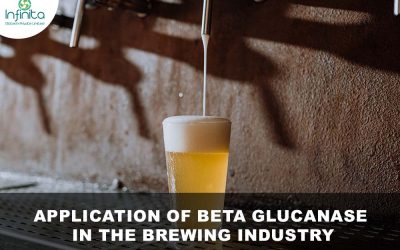Enzymes for Biodiesel

Biodiesel is a renewable energy source unlike other petroleum products that will vanish in years to come. It can be produced on demand and causes less pollution compared to petroleum diesel. Biodiesel is simple to use, biodegradable, non – toxic, and essentially free of sulphur and aromatics.
The use of biodiesel helps reduce dependence on finite fossil fuel reserves, while its emissions have decreased levels of hydrocarbons and nitrated compounds that have been identified as potential cancer-causing compounds. Biodiesel is typically made by chemically reacting lipids with an alcohol producing fatty acid esters.

With extensive R&D, specialised enzymes complexes have been developed for esterification of the oils to produce biodiesel. In the enzymatic process, there is no soap and no caustic formation. Less than tenth of the energy consumed in the chemical process is required in the Enzymatic process. The enzyme provides plant flexibility and it allows expanding the feedstock selection to multi-functional plants working with cheaper feedstocks. The major economic benefit of enzymes comes in their ability to handle a variety of inexpensive and high FFAs feedstocks such as Brown Grease, Acid Oils, Used Cooking Oil, Animal Fat, etc
Biodiesel is a renewable energy source unlike other petroleum products that will vanish in years to come. It can be produced on demand and causes less pollution compared to petroleum diesel. Biodiesel is simple to use, biodegradable, non – toxic, and essentially free of sulphur and aromatics.
The use of biodiesel helps reduce dependence on finite fossil fuel reserves, while its emissions have decreased levels of hydrocarbons and nitrated compounds that have been identified as potential cancer-causing compounds. Biodiesel is typically made by chemically reacting lipids with an alcohol producing fatty acid esters.


With extensive R&D, specialised enzymes complexes have been developed for esterification of the oils to produce biodiesel. In the enzymatic process, there is no soap and no caustic formation. Less than tenth of the energy consumed in the chemical process is required in the Enzymatic process. The enzyme provides plant flexibility and it allows expanding the feedstock selection to multi-functional plants working with cheaper feedstocks. The major economic benefit of enzymes comes in their ability to handle a variety of inexpensive and high FFAs feedstocks such as Brown Grease, Acid Oils, Used Cooking Oil, Animal Fat, etc
Our Solutions

LIPASE COMPLEX ENZYMES
Our specialised Lipase Complex Enzymes for esterification of edible and non – edible Oils can be utilised to produce biodiesel.

Eco-Friendly

Efficient
Esterification

Highly Specific
Lipase

Eco-Friendly

Efficient Esterification

Highly Specific Lipase
Related Articles
The Role of Enzymes in Sugar Processing: Enhancing Efficiency and Quality
Sugar processing plays a vital role in our daily lives, as sugar is an essential ingredient used in various food and beverage products. The process of turning raw materials, such as sugar cane or sugar beets, into the refined sugar we consume involves complex steps...
Enzyme Engineering: The Future of Biocatalysis
Enzyme Engineering is a cross-disciplinary field blending biochemistry, molecular biology, and chemical engineering principles. It involves the design and development of new or improved enzymes for various applications. Enzyme engineering aims to satisfy the needs of...
Application Of Beta Glucanase In The Brewing Industry
Beer and wine have been an indispensable part of our social life since time immemorial. In the brewing industry, both beverages are produced by yeast fermentation of sugars. Grapes are the basis for wine and barley is an essential ingredient for beer, since they...
QUICK LINKS
HOME
ABOUT
CERTIFICATIONS
BLOGS
MEDIA
CAREERS
FAQs
CONTACT
PRODUCTS
© 2024, Infinita Biotech Private Limited. All rights reserved.
Designed by Kerkar Media



